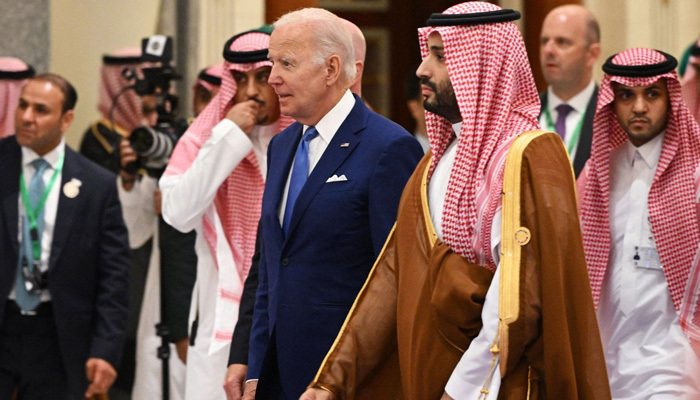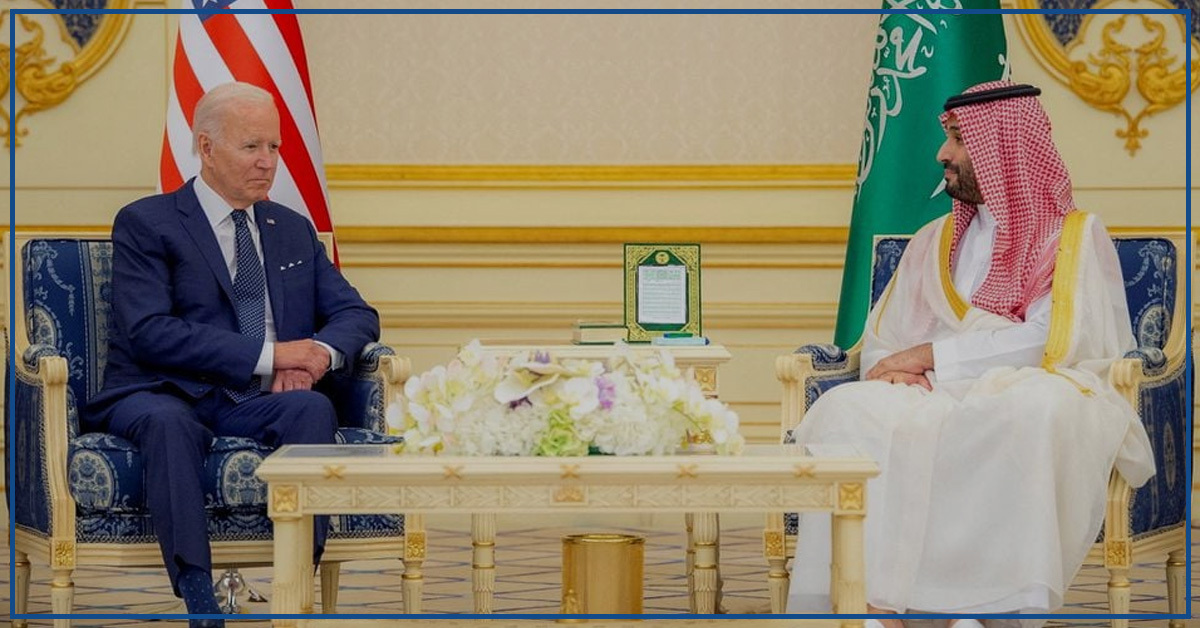The United States is on the brink of lifting its ban on the sale of offensive weapons to Saudi Arabia, potentially within the next few weeks, as reported by the Financial Times on Sunday.
This anticipated policy shift comes after Washington conveyed to Riyadh its willingness to rescind the ban, according to an anonymous source familiar with the matter.
Upon taking office in 2021, President Joe Biden adopted a more stringent stance towards Saudi Arabia, particularly regarding its military campaign against the Houthis in Yemen, which has resulted in significant civilian casualties.
Additionally, Biden’s administration criticized Saudi Arabia’s human rights record, especially the 2018 murder of Jamal Khashoggi, a Washington Post journalist and political dissident. The initial ban on selling offensive weapons to Saudi Arabia was a response to these concerns.
American-made weapons had been implicated in airstrikes that caused civilian deaths, prompting Biden to suspend such armament sales shortly after his inauguration.
However, this decision has been under reconsideration following a United Nations-brokered truce in 2022, which has largely held as Saudi Arabia seeks to extricate itself from the conflict in Yemen.
Saudi Arabia, a major customer of U.S. arms, has found the restrictions on weapon sales particularly irksome. These constraints halted the types of weapons that previous U.S. administrations had routinely provided.
Nevertheless, the dynamics have shifted, with both nations nearing an agreement on various fronts. Recently, U.S. Secretary of State Antony Blinken mentioned that the U.S. and Saudi Arabia were close to concluding a series of agreements related to nuclear energy, security, and defense cooperation.
These agreements are part of a broader normalization deal involving Riyadh and Israel. However, the potential lifting of the ban on offensive weapons is not directly tied to these talks, as per the Financial Times.
The lifting of this ban would symbolize a significant improvement in the relationship between the Biden administration and Saudi Arabia.
It follows a period where Washington’s strategic needs, especially in light of Russia’s invasion of Ukraine, have underscored the importance of Saudi cooperation on energy and Middle Eastern policies.

Despite the friction in past years, Saudi Arabia has continued to engage with the UN-mediated peace process in Yemen. In a move that indicates Riyadh’s preference for de-escalation, it has refrained from joining a U.S. led maritime task force designed to counter Houthi attacks on shipping.
This restraint aligns with the Biden administration’s view that maintaining Saudi Arabia as a key regional partner is crucial, especially amidst the escalating regional tensions following the Israel-Hamas conflict.
Ali Shihabi, a Saudi commentator with close ties to the royal court, emphasized that lifting the ban on offensive weapons sales would be a critical step towards mending and strengthening the U.S.-Saudi relationship. He pointed out that such a move has gained increased significance given the recent behavior of the Houthis.
As the Biden administration navigates its complex relationship with Saudi Arabia, the potential policy shift reflects a nuanced approach that balances past human rights concerns with current geopolitical and strategic necessities.
The evolving dynamics underscore the intricate interplay between international diplomacy, regional stability, and domestic policy considerations.
If the ban is indeed lifted, it will mark a notable milestone in U.S.-Saudi relations, one that could reshape the future interactions between the two nations on both diplomatic and military fronts.





